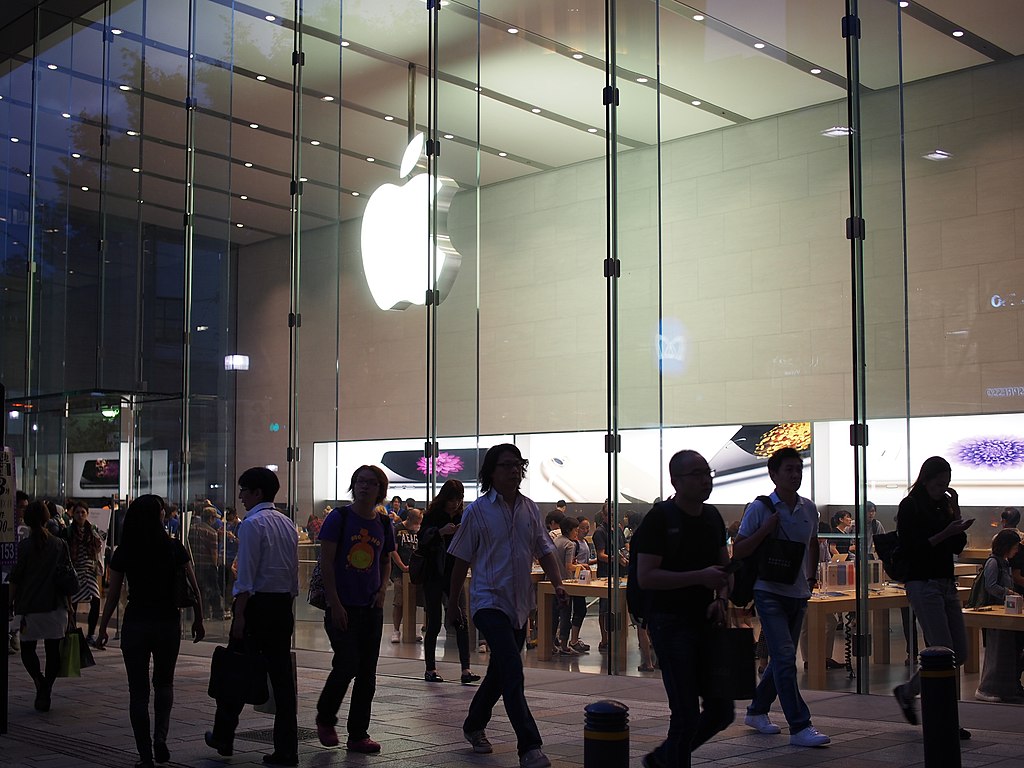Apple Inc. could be staring down a significant financial hit if former President Donald Trump reintroduces tariffs during a potential second term, according to a detailed analysis by Jefferies on Friday. The investment bank warns that proposed tariffs could add as much as $256 to the price of an iPhone, potentially turning the iconic smartphone into a lightning rod for political and economic debate.
Trump’s Proposed Tariff Shockwave
Jefferies analysts outlined a “worst-case scenario” in which Trump imposes a 60% tariff on Chinese imports and 10% on other non-U.S. content. This would severely impact Apple’s supply chain, which remains heavily dependent on China despite recent diversification efforts.
The flagship iPhone 16 Pro Max, set to launch next year, could bear the brunt of these tariffs. Jefferies estimates that a 60% tariff on Chinese components alone would inflate the price of the device by $256. This figure represents nearly 22% of the phone's average selling price in the U.S., a cost that could easily trickle down to consumers.
Potential Fallout on Apple’s Margins
Jefferies predicts the tariffs could cause Apple’s gross margins to plummet by 6.7 percentage points under the most severe conditions. This would translate to a 10% reduction in the company’s discounted cash flow valuation. Even a less aggressive scenario, where only Chinese-made components are taxed at 60% and other imports at 10%, could still shave three percentage points off gross margins and reduce valuation by 5%.
While the potential financial hit isn’t catastrophic, the firm warns that increasing demands for localized production in emerging markets like India and Indonesia could further exacerbate supply chain challenges. Jefferies stresses that the margins lost to moving assembly lines out of China could compound Apple’s struggles in the long run.
Strategic Dilemmas and Consumer Impact
Apple’s ongoing efforts to shift production to other regions, such as India, are unlikely to offset the immediate financial strain. Currently, only 10% of iPhone production takes place outside China, leaving Apple highly exposed to Trump’s tariff proposals.
The proposed tariffs could push Apple to make tough decisions—either absorb the additional costs, pass them on to consumers, or accelerate its supply chain diversification at a significant expense. Analysts speculate that higher iPhone prices could lead to decreased demand, further eroding Apple’s market share and profit margins.
Political Pressure Meets Consumer Backlash
The timing of these potential tariffs coincides with rising political pressure to promote domestic manufacturing. However, Jefferies warns that such measures could lead to “long-term profitability challenges” for Apple, as localizing production is not only expensive but also time-intensive.
While the company has weathered similar storms in the past, the scale and scope of Trump’s proposed tariffs may create a “perfect storm” of political, economic, and consumer challenges.



 OpenAI Faces Scrutiny After Banning ChatGPT Account of Tumbler Ridge Shooting Suspect
OpenAI Faces Scrutiny After Banning ChatGPT Account of Tumbler Ridge Shooting Suspect  Dominican Republic Unveils Massive Rare Earth Deposits to Boost High-Tech and Energy Sectors
Dominican Republic Unveils Massive Rare Earth Deposits to Boost High-Tech and Energy Sectors  APEX Tech Acquisition Inc. Raises $111.97 Million in NYSE IPO Under Ticker TRADU
APEX Tech Acquisition Inc. Raises $111.97 Million in NYSE IPO Under Ticker TRADU  Federal Judge Blocks Virginia Social Media Age Verification Law Over First Amendment Concerns
Federal Judge Blocks Virginia Social Media Age Verification Law Over First Amendment Concerns  Philippines, U.S., and Japan Conduct Joint Naval Drills in South China Sea to Boost Maritime Security
Philippines, U.S., and Japan Conduct Joint Naval Drills in South China Sea to Boost Maritime Security  Coupang Reports Q4 Loss After Data Breach, Revenue Misses Estimates
Coupang Reports Q4 Loss After Data Breach, Revenue Misses Estimates  U.S.-Iran Nuclear Talks Show Progress but No Breakthrough Amid Rising Military Tensions
U.S.-Iran Nuclear Talks Show Progress but No Breakthrough Amid Rising Military Tensions  Samsung Stock Hits Record High on Nvidia HBM4 Supply Deal, Boosting AI Chip Rally
Samsung Stock Hits Record High on Nvidia HBM4 Supply Deal, Boosting AI Chip Rally  Hyundai Motor Group to Invest $6.26 Billion in AI Data Center, Robotics and Renewable Energy Projects in South Korea
Hyundai Motor Group to Invest $6.26 Billion in AI Data Center, Robotics and Renewable Energy Projects in South Korea  U.S.-Israel Strike on Iran Escalates Middle East Conflict, Trump Claims Khamenei Killed
U.S.-Israel Strike on Iran Escalates Middle East Conflict, Trump Claims Khamenei Killed  Trump Warns Iran as Gulf Conflict Disrupts Oil Markets and Global Trade
Trump Warns Iran as Gulf Conflict Disrupts Oil Markets and Global Trade  FCC Approves Charter Communications’ $34.5 Billion Acquisition of Cox Communications
FCC Approves Charter Communications’ $34.5 Billion Acquisition of Cox Communications  Trump Media Weighs Truth Social Spin-Off Amid $6B Fusion Energy Pivot
Trump Media Weighs Truth Social Spin-Off Amid $6B Fusion Energy Pivot  Venezuela Oil Exports to Reach $2 Billion Under U.S.-Led Supply Agreement
Venezuela Oil Exports to Reach $2 Billion Under U.S.-Led Supply Agreement  OpenAI Targets $600B Compute Spend as IPO Valuation Could Reach $1 Trillion
OpenAI Targets $600B Compute Spend as IPO Valuation Could Reach $1 Trillion  Anthropic Refuses Pentagon Request to Remove AI Safeguards Amid Defense Contract Dispute
Anthropic Refuses Pentagon Request to Remove AI Safeguards Amid Defense Contract Dispute 































